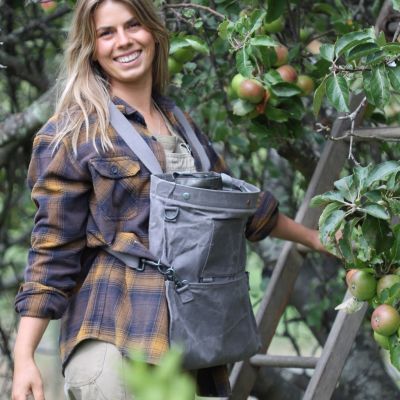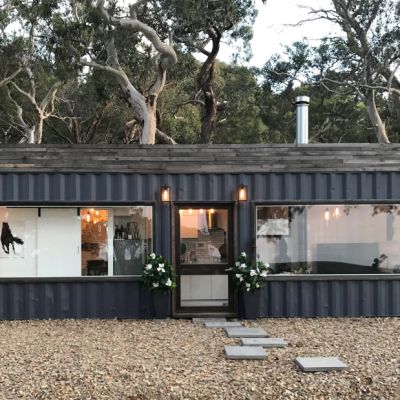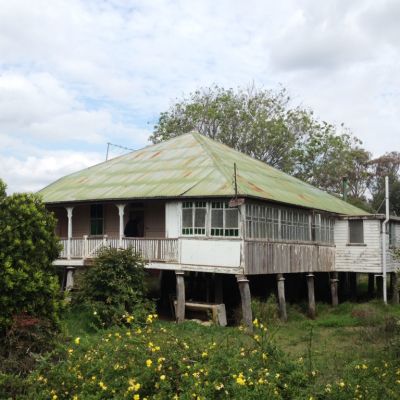How Amy and David turned their suburban backyard into a thriving food forest
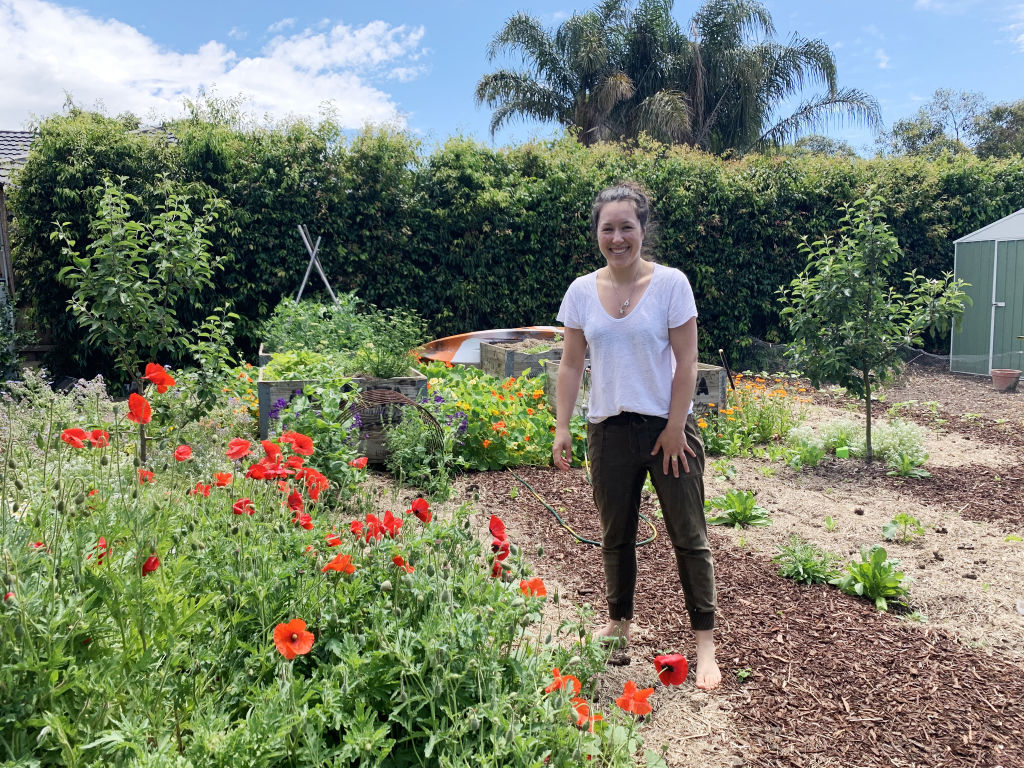
Living on a small, suburban block of land wasn’t going to stop Amy Hunt from growing as much of her own food as possible.
The 33-year-old social media officer says that she and her partner, David Butler, a plumber, were essentially gardening novices when they bought a 550-square-metre home in Frankston South a few years ago.
Yet what the couple lacked in experience, they made up for in inspiration. While living in the inner city, Hunt and Butler had signed up to CERES Fair Food and started walking their home compost to a local primary school that had a kitchen garden. Hunt volunteered one day a week at an organic farm (Mossy Willow in Main Ridge) and spent two weeks living in a tiny house at Hollyburton organic farm in the Macedon Ranges. She fell in love with the idea of shifting away from relying on big supermarkets for food.
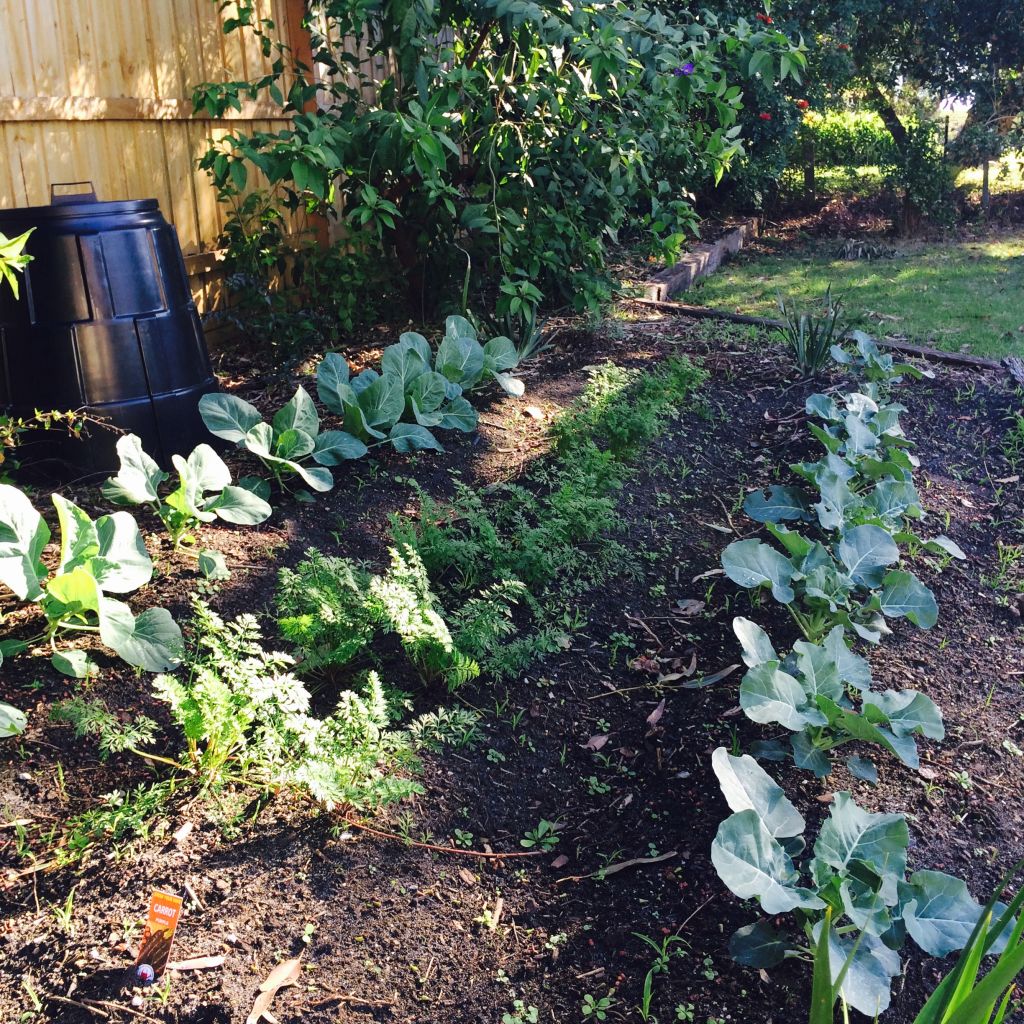
Once they bought their own home, Hunt and Butler got to work on their new back yard and, soon enough, they had a garden brimming with life.
“Our little back yard was really simple but one of the great things about it was it was flat and it had a north-facing direction, so in terms of growing, it was actually really well set up,” says Hunt. “The soil was poor, so that was something that needed to be improved.”
They started by turning the soil and putting rows of seasonal vegetables straight into the ground. Later they added old apple crate boxes, slowly expanding the vegetable patch until it took up half the yard.
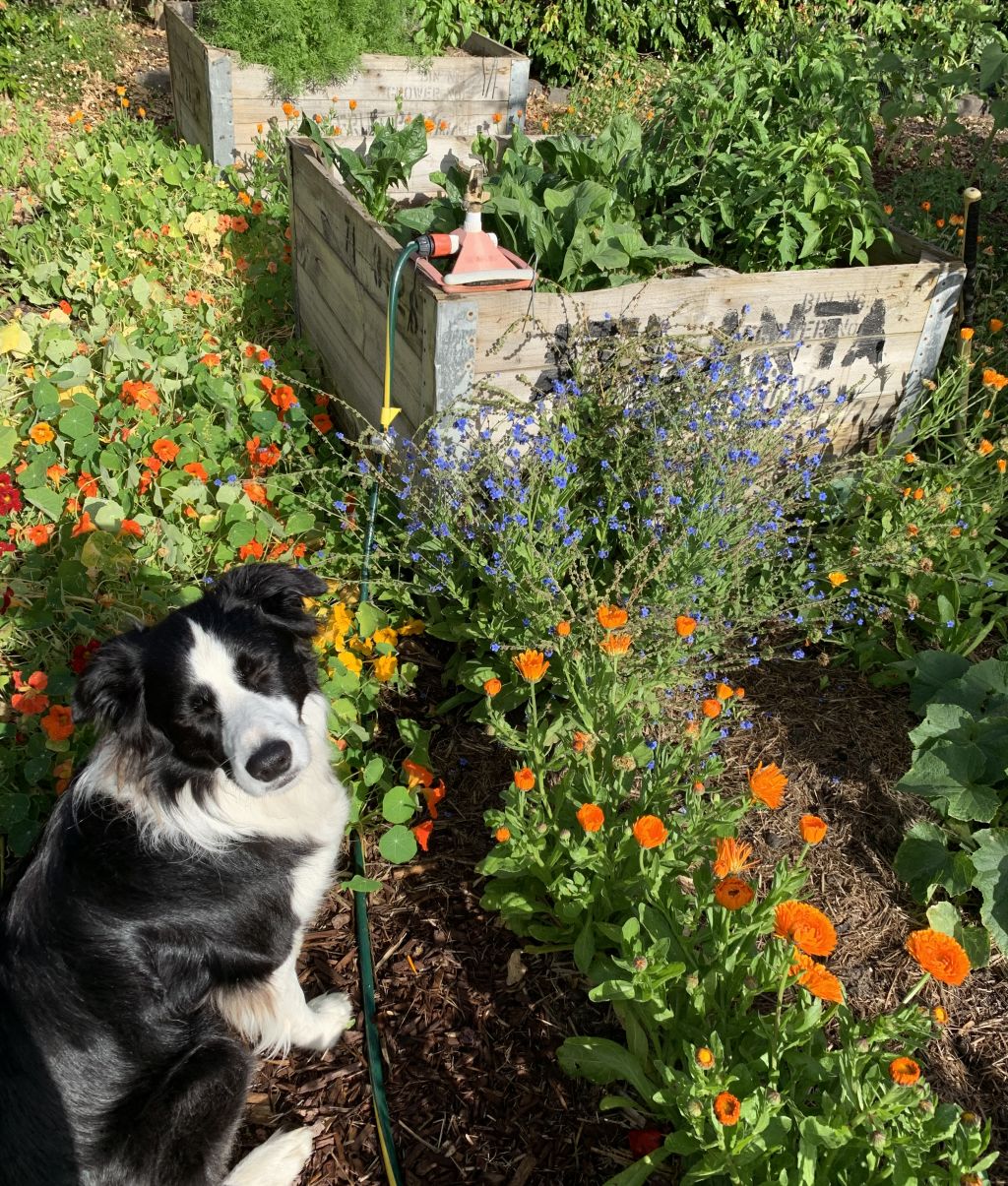
They installed apple trees, a nectarine tree, and a chinotto (bitter orange) tree, plus more fruit trees in pots and a range of flowers. Hunt began following permaculture principles and Butler used YouTube tutorials to help him build a chicken coop for their new bantam chooks.
“The overall objective is to grow food for yourself, plus a protein source,” explains Hunt.
“So, eggs are awesome for that. They’re a cheap and easy source of protein that you can use for so many different recipes, so that really appealed, and the chook poo is good for the compost, and then it fertilises the soil eventually. They’re also great pest control, and they’re so cute.”
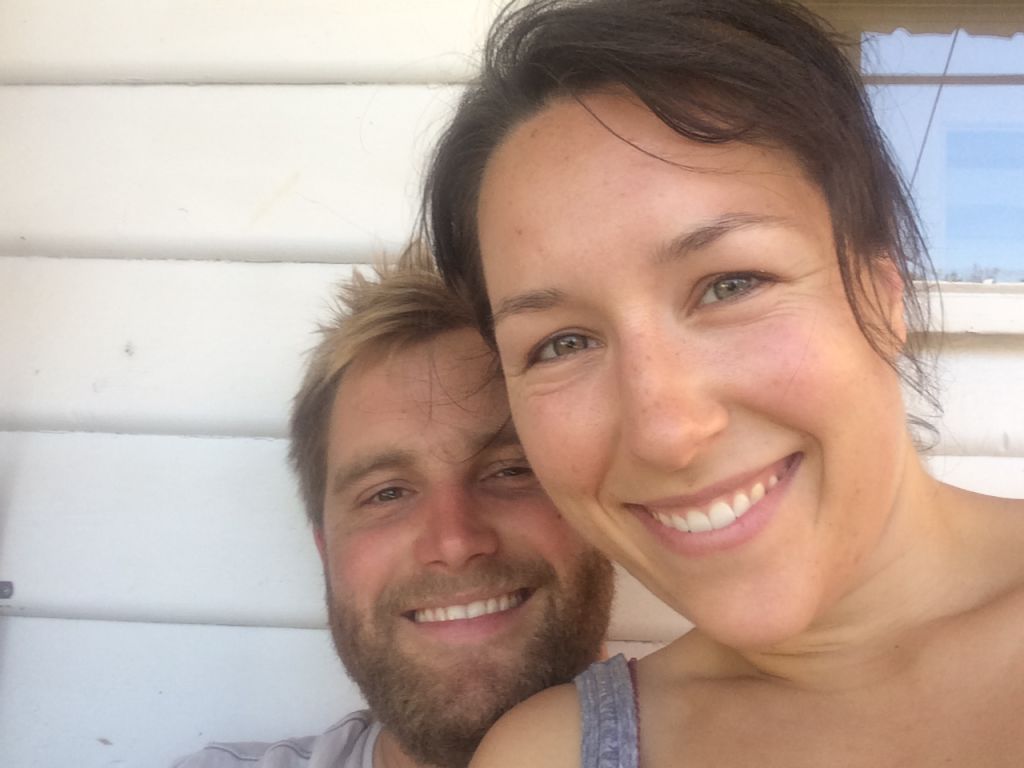
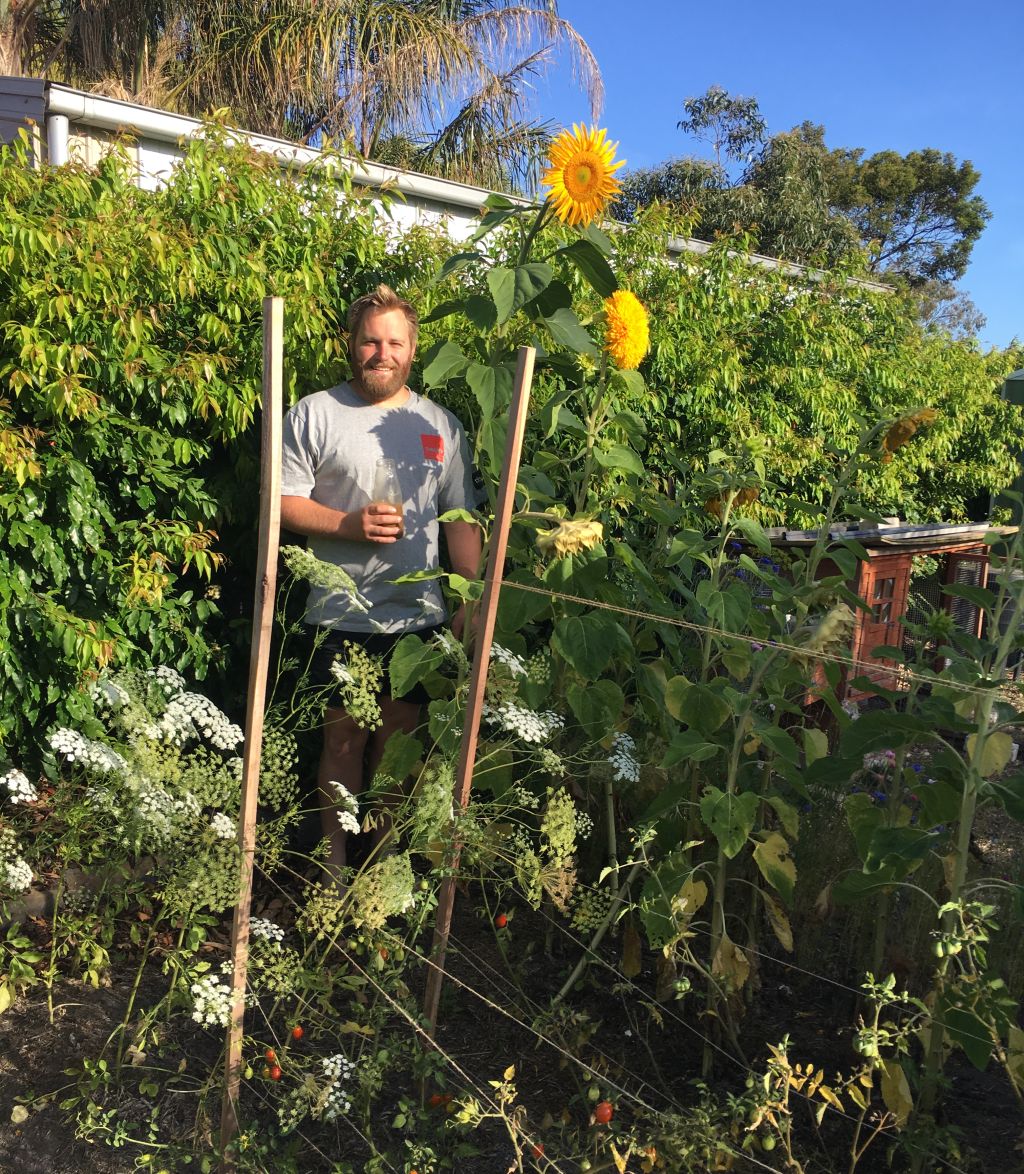
Hunt says there is a long list of benefits to creating a vegetable garden or food forest in your back yard. As well as spending less money at supermarkets, she noticed how much better home-grown produce tastes than food that’s been part of a lengthy supply chain.
She also can testify that having a beautiful, rambling garden, nurturing plants and thinking up creative ways to cook or preserve vegetables can have a “great impact on your mental health”.
“It’s a combination of beauty in seeing the actual plants unfurling and the seeds growing, and the little flowers, and then the pleasure of the productive nature [of it] – having the fruit or veggies to enjoy eating,” she says.
For those with a yet-to-be-planted or burgeoning veggie patch, Hunt recommends starting with the first principle of permaculture: “observe and interact”. This means spending time in the garden simply noticing the environment, including which parts of the space receive the most wind and sun and which are protected or shaded.
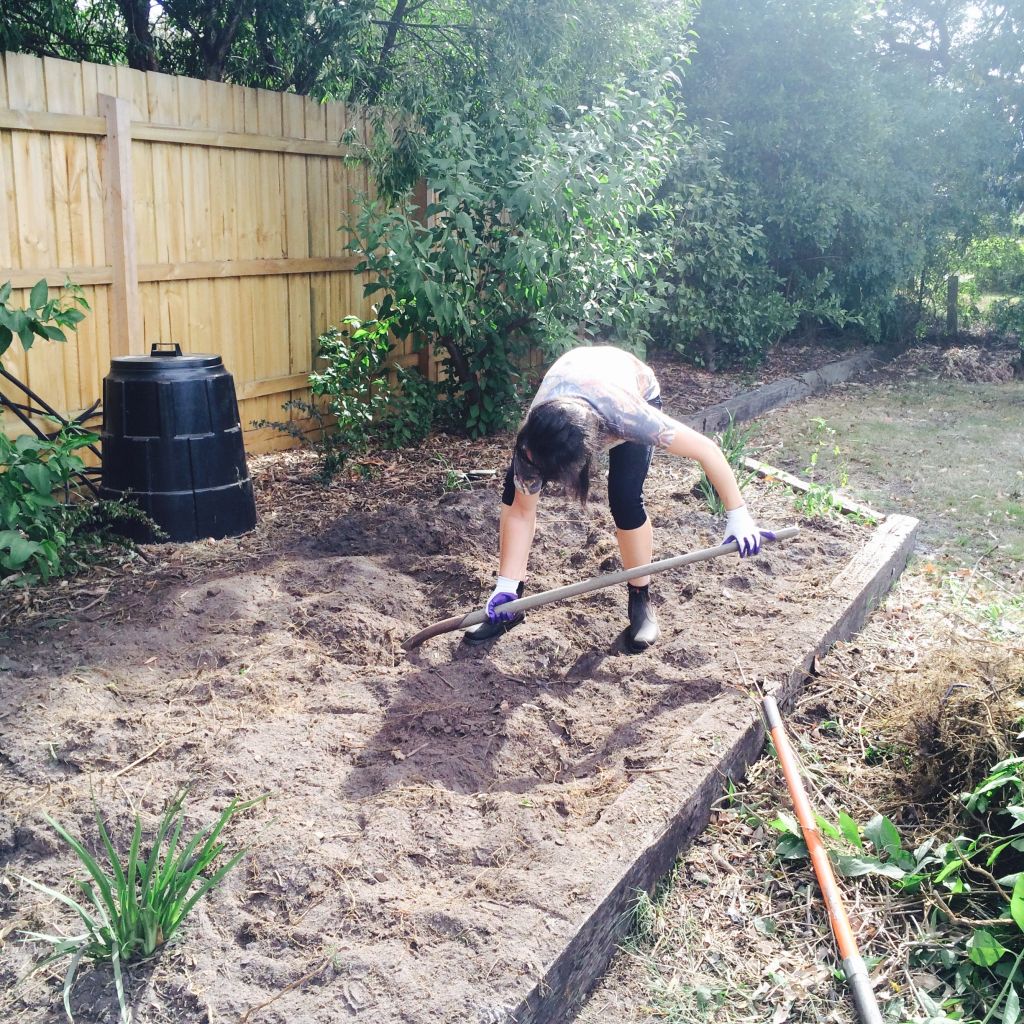
“By spending time and just taking a cup of coffee or tea and walking through your veggie patch in the morning, in the afternoon. And, just kind of hanging out in the space, you’ll observe things like pests,” she says. “You’ll probably pull out a few weeds here and there. By just spending time in the garden you’ll [end up] doing the best job possible.”
Hunt and Butler are leasing their Frankston South home as they prepare to embark on a 12-month road trip around Australia. As luck would have it, the couple who have moved in are studying sustainability and are keen to keep the veggie patch thriving while their landlords are away.
Hunt says edible gardens are great for creating community and encouraging these kinds of connection between people.
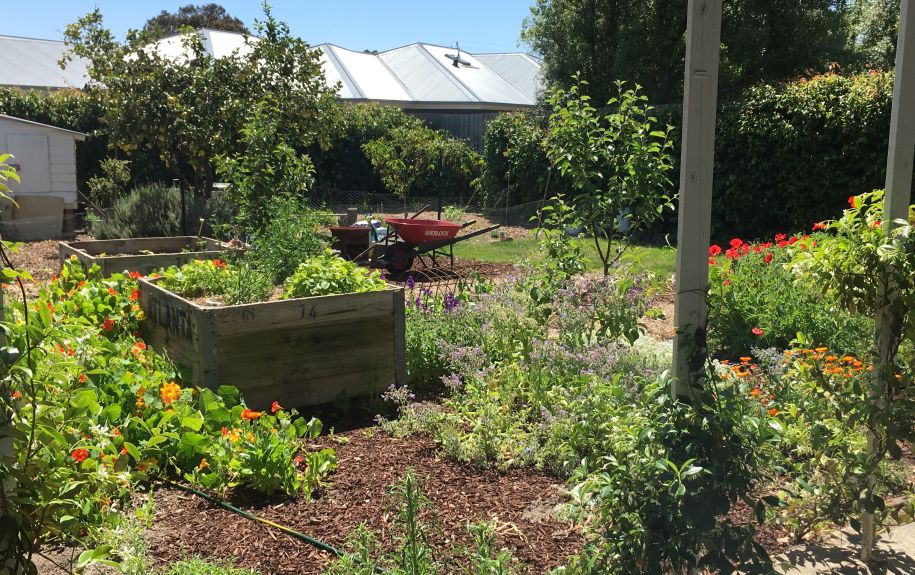
“I think there’s a lot more joy and connection that comes from growing food-based gardens. And, it’s a really simple and universal way of connecting, which appeals in this day and age, because a lot of our lifestyle seems to get away from that. Our lifestyles are more individual [these days].”
As additional tips, Hunt suggests getting your confidence up by planting things in pots that are easy to grow, such as tomatoes and herbs, and persisting even if things don’t work about the first time around.
“Just have a go,” she says.
This article is part of a series on Green Homes, brought to you by Belong, Australia’s first carbon-neutral telco and winner of Finder’s Green Telco of the Year 2020.
We recommend
We thought you might like
States
Capital Cities
Capital Cities - Rentals
Popular Areas
Allhomes
More
